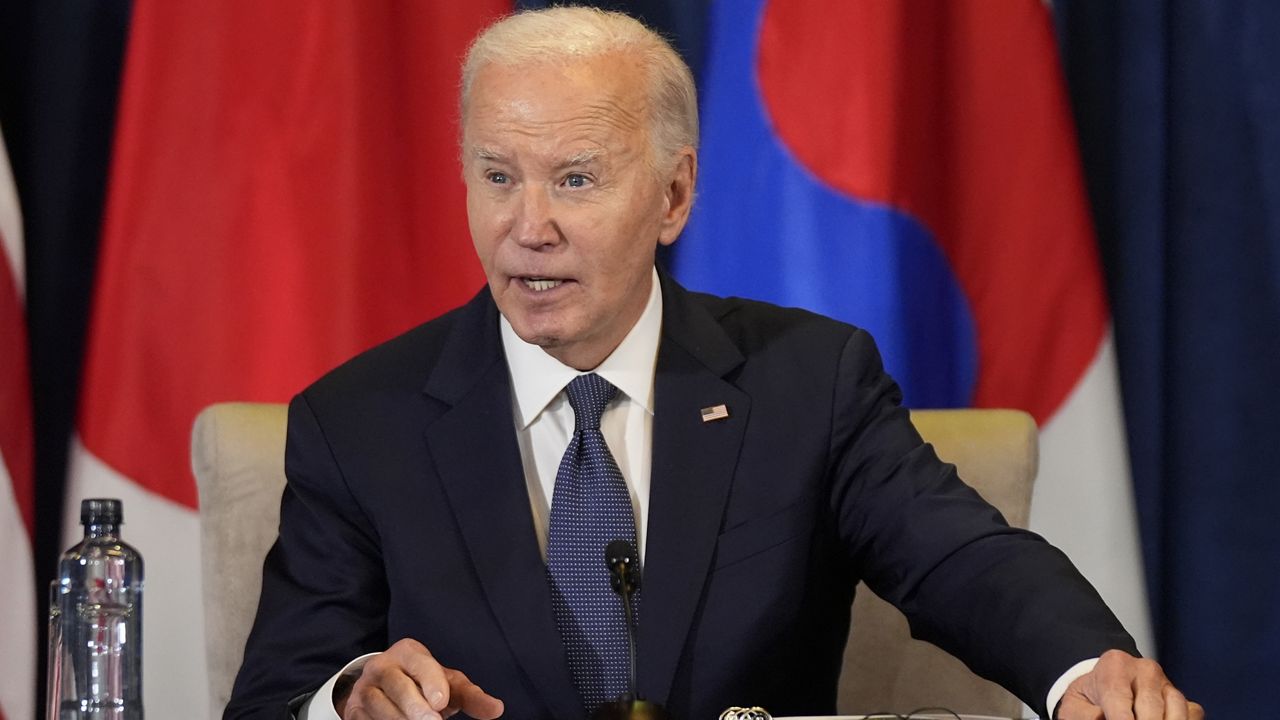President Joe Biden embarked on his first day of the Asia-Pacific Economic Cooperation summit in Lima, Peru on Friday as part of a six-day trip to Latin America that will also see him attend the Group of 20 meeting in Brazil.
The visit marks what is potentially Biden’s last opportunity to huddle overseas with dozens of foreign leaders before he leaves office in January and President-elect Donald Trump takes over.
The president kicked off the day participating in a meeting with APEC leaders that featured welcome remarks from this year’s host, President Dina Boluarte of Peru. The Peruvian leader noted that the goal of the summit is to “level the playing field” and provide the “necessary tools for inclusion.”
The 21-member organization was created to foster economic growth and investment in the Asia-Pacific region, an area Biden has placed a significant emphasis on during his presidency amid recently rocky relations with China.
As part of that effort, the president on Friday also sat down separately with the leaders of Japan and South Korea, building on the historic meeting between the three nations last year at the presidential retreat in Maryland, Camp David. Japan and South Korea have a long history of frosty relations but Biden has sought to bring them closer to one another and to the U.S. amid security challenges posed by China and North Korea.
“It’s part of a much larger effort, these past four years, to bring together America’s Pacific allies,” Biden said of the Camp David huddle.
“I’m proud of how far we’ve come since that historic meeting, promoting development in southeast Asia and the Pacific islands, linking arms to secure the technologies of the future and countering North Korea’s dangerous and destabilizing cooperation with Russia,” he said, referring to North Korea troops joining the fight in Ukraine.
The U.S. leader noted that Friday’s meeting was likely to be his last with the “important group,” while seeking to assure the world that the partnership is “built to last.” A senior administration official told reporters that the strengthening North Korean-Russia alliance was a key focus of the meeting and that Trump did not come up at all.
He also had individual “pull asides” with South Korea’s President Yoon Suk Yeol and Japan’s Prime Minister Ishiba Shigeru – his first in-person meeting with the new Japanese leader since Biden’s close ally, former Prime Minister Fumio Kishida, left office and he took over.
Biden on Friday also sat down individually with summit host Boluarte. During brief remarks to press ahead of their meeting, he called Peru a “very important and valued partner.”
He said he specifically wanted to note three areas of “growing cooperation,” which include fighting drug trafficking, infrastructure and space exploration.
On the counter-narcotics efforts, Biden announced a $65 million assistance package that will include sending nine Black Hawk helicopters to Peru in a bid to bolster the country’s work to combat trafficking and transnational organized crime.
This week’s APEC meeting marks the first major world summit since Trump was elected to serve another four years in the White House. And, along with the G20 meeting Biden will attend in the coming days in Brazil, it is possible it could be his last chance to huddle with a mix of foreign leaders before he hands over the reins and closes out a more than five-decade-long career in politics.
The president is set to meet with China’s Xi Jinping on Saturday before traveling to Manaus, Brazil, to become the first sitting U.S. president to visit the Amazon rainforest. Later he will stop in Rio de Janeiro to meet with Brazilian President Luiz Inácio Lula da Silva and attend the G20.
Biden and Xi used last year’s APEC summit – hosted by the U.S. in California – as a chance to meet individually and face-to-face as well. The two world leaders met for hours on the summit’s sidelines, where they emerged touting agreements on better communications between their militaries and combating illicit fentanyl production after a period of particularly tense relations between the two global superpowers.



